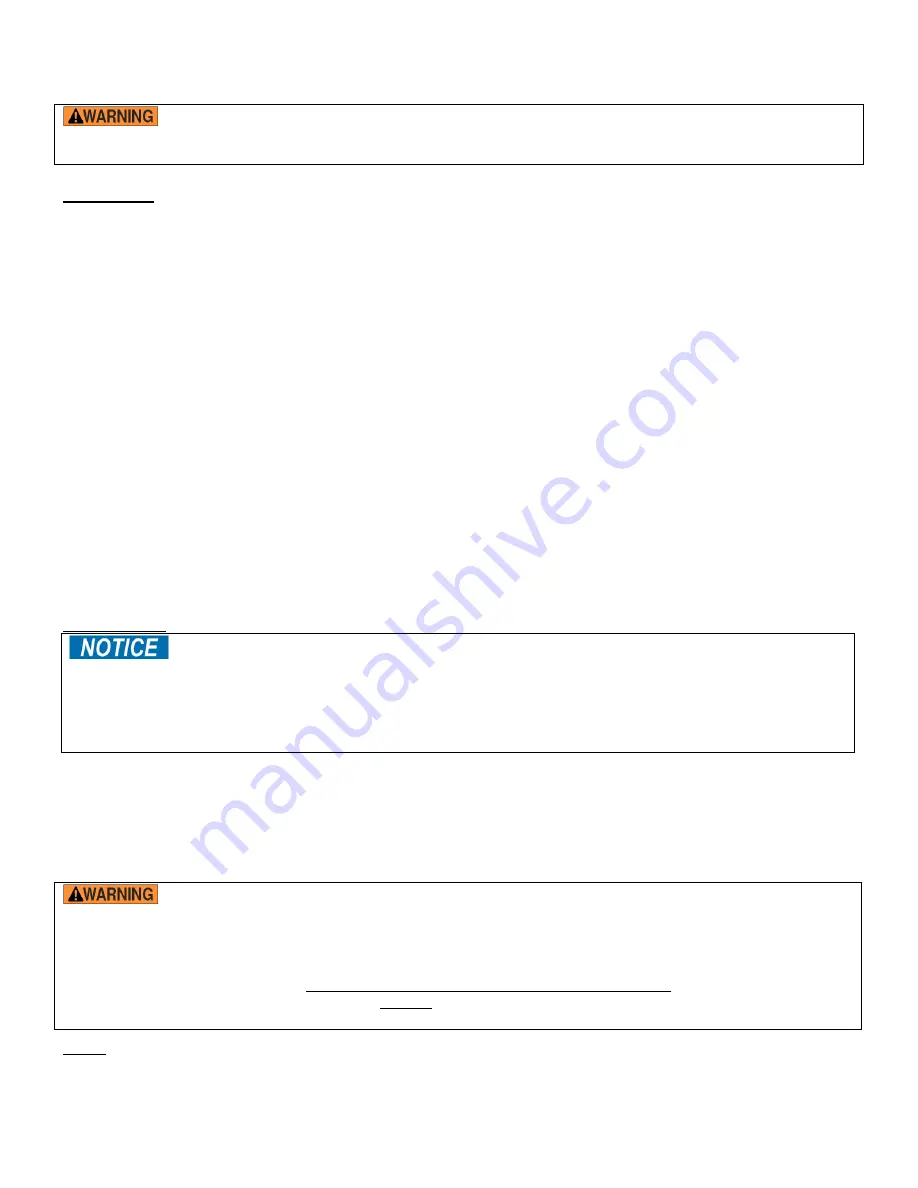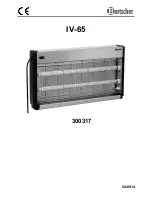
Rev. 3/21/2017
DCR-205-20, MANUAL
Copyright 2017 Vestil Manufacturing Corp. All Rights Reserved
Page 5 of 6
Inspections & Maintenance:
perform the inspections explained below and maintain the drum carrier as
described to ensure that the unit is and remains in normal operating condition.
If a problem is discovered during an inspection, restore the drum carrier to normal operating
condition BEFORE using it again.
DO NOT use the carrier if it is structurally damaged in any way. Structural damage
includes, but is not limited to, cracked welds, warping or deformation of the frame, drum cradle.
Inspections:
Before each use, including first use, inspect the listed components:
1. Safety chain and snap: confirm that the spring latch automatically closes securely against the hook. DO NOT
use the carrier if any part of the safety chain mechanism is damaged.
2. Product labels: all labels should be readable and located as shown in the “Labeling diagram” on p. 3. If a
label(s) is unreadable or missing, contact Vestil to order a replacement.
Periodic inspection (at least 1 time per month):
1. Fasteners
(hardware):
Bolts, nuts, washers, and snap hooks
Chain that rotates the drum cradle.
2. Fork pockets: confirm that each pocket is structurally sound, not corroded, and free of rust. Only use the
carrier if the fork pockets are in normal condition.
3. Welds: confirm that all welds are intact.
4. Drum cradle, ratchet straps, ratchet handle, and supporting frame: must be undamaged. For example, no
structural deformation, warps, or cracks.
5. Gear reducer (item 2 on p. 3), chain wheel, & pivot points: rotate the drum cradle to confirm normal operation
of the gear reducer and chain wheel. Lubricate pivot points periodically.
6. Cradle hinges: confirm that hinges operate normally. Lubricate all hinges at least once per month or more
frequently if the drum carrier experiences heavy usage.
5. Overall condition of drum carrier: the structure should be clean, square and rigid, and free of rust and
corrosion. Remove dirt and debris. Do not use the carrier if the supporting frame and/or one or both ratchet
straps are excessively torn, rusted, or otherwise damaged.
Maintenance:
Proper use, maintenance, and storage are essential for this product to function properly.
Always use the carrier as described in the instructions in this manual and consistently with any training relevant to
forklift attachments.
ONLY install replacement parts supplied or approved by the manufacturer.
ALWAYS store the DCR in a dry location. If necessary, elevate the carrier by storing it on a pallet, storage rack,
etc. to prevent damage that might occur if contact with water or corroding liquids occurs.
Step 1: Tag the unit, “Out of Service.”
Step 2: Remove any dirt or other matter from all surfaces.
Step 3: Conduct a “Periodic” inspection. If deformity, corrosion, rusting, or excessive wear of structural members is
found, DO NOT use the product.
Step 4: Perform all necessary adjustments, replacements and/or repairs but DO NOT modify the carrier.
DO NOT use the unit if adjustments and/or repairs are incomplete! DO NOT modify the drum carrier in
any way.
An “adjustment” is a simple correction that restores the unit to normal operating condition, such as tightening loose
fasteners, or removing dirt or other debris from the surface. “Repair” refers to removing worn parts and installing
replacement parts.
A “modification” is a change that alters the drum carrier from normal operating condition, like bending the structural
members or removing a part or several parts. NEVER modify the unit without the express, written approval of Vestil.
Modifications might make the device unsafe to use and
automatically
void the limited warranty.
Step 5: Make a dated record of any repairs, adjustments and/or replacements.
























